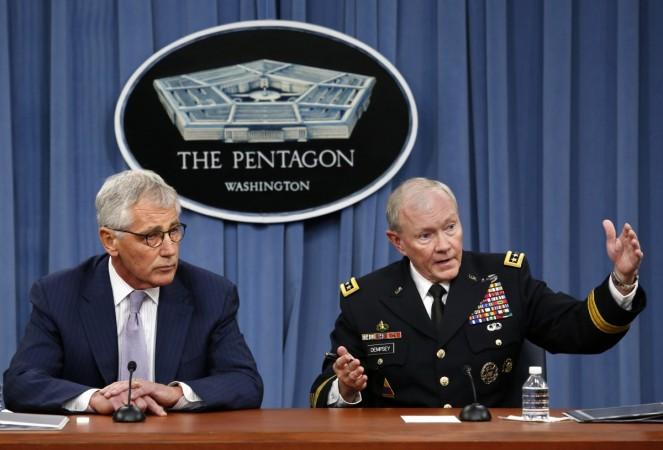
The growing prowess of the militant group, Islamic State, backed by its sophistication, wealth and military might, poses the greatest threat to the United States and might even surpass that once posed by al Qaeda, the Pentagon said on Thursday.
"They are an imminent threat to every interest we have, whether it's in Iraq or anywhere else," Defense Secretary Chuck Hagel said in a news conference at the Pentagon.
Hagel said the US air strikes currently being carried out had helped to break the Islamist advance in Iraq, but the militants could regroup anytime and launch attacks in the area.
General Martin Dempsey, chairman of the US Joint Chiefs of Staff, also stressed that IS could not be defeated without attacking their base in Syria.
The warnings – that tends to be the first signs of American uneasiness ever since US military left Iraq in 2011 – comes only days after the jihadists posted a video showing the beheading of US journalist James Foley.
The incident spiralled into an angry national reaction with a general mood of resentment being sensed in the whole of America against the growing threats of the notorious jihadists that have now overrun major areas in Iraq's north and Syria in their quest to build a Caliphate state.
Asked if the hardliner Sunni Muslim organisation posed a threat to the American land similar to that of the Sept 11 attack, Hagel said the group was "as sophisticated and well-funded as any group we have seen."
"They are beyond just a terrorist group. They marry ideology, a sophistication of...military prowess. They are tremendously well-funded. This is beyond anything we've seen."
'Apocalyptic, End of Days Vision'
The comments, which were among Pentagon's first reaction after the beheading video was discussed virally in the media, came as the United States continued attacking the IS targets in Iraq. In the past two weeks alone, US drones and fighter jets have conducted 89 air strikes against militant targets in northern Iraq, according to Reuters.
Obama's decision for conducting the military campaign in Iraq has, for many political analysts, dragged the US irreversibly into the war that the administration once thought they left behind four years ago. There are fears that the history of the Iraqi carnage that claimed lives of thousands of American soldiers and consumed US foreign policy for nearly a decade, could repeat itself – haunting American lives for a long time.
General Dempsey conceded that one of the biggest fears were that the radical fighters who are from Europe or the US could return to their home countries with plans to attack their enemy in ways that could surpass the American intelligence.
"This is an organisation that has an apocalyptic, end-of-days strategic vision and which will eventually have to be defeated," Dempsey said
"To your question, can they be defeated without addressing that part of their organisation which resides in Syria? The answer is no. That will have to be addressed on both sides of what is essentially at this point a non-existent border."

















